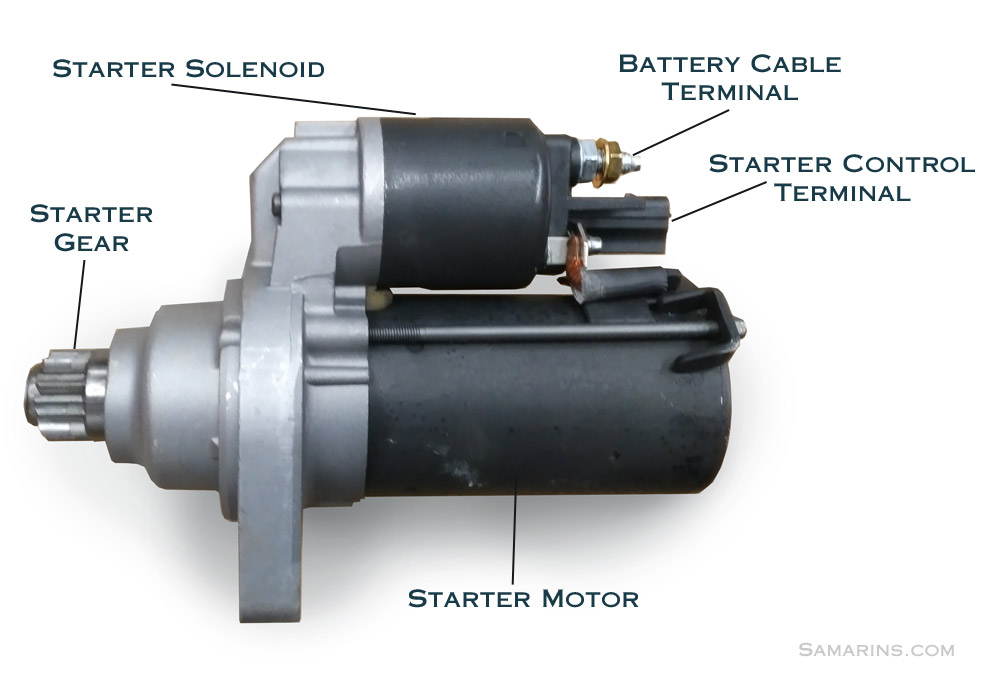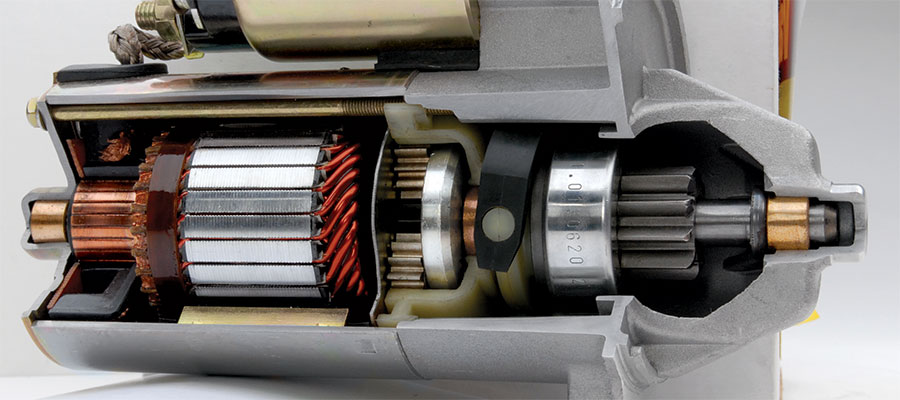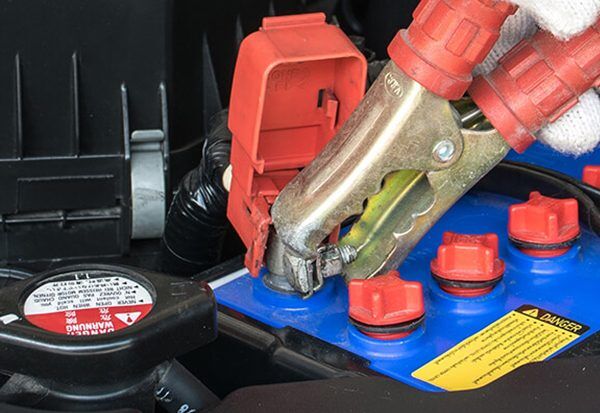Common Car Starter Problems: Signs Your Vehicle Needs Attention. Is your car struggling To start? Discover common starter problems & signs that your vehicle needs attention. Keep your ride smooth & trouble-free!
What is Common Car Starter Problems: Signs Your Vehicle Needs Attention & how does it work?
A starter motor engages engine upon ignition. If faulty, vehicle struggles. Drivers often notice signs before failure. Understanding these issues aids proactive maintenance. Various components work in harmony. These include battery, ignition, & wiring. Each part contributes crucially during starting process Common Car Starter Problems.
Brief history of Common Car Starter Problems: Signs Your Vehicle Needs Attention
Starter motors date back over a century. Early designs were simple, often requiring manual intervention. Innovations led To automatic starters. Improvements focused on reliability & efficiency. Many vehicles today utilize advanced technologies. Constant upgrades enhance starter performance & longevity.
How To implement Common Car Starter Problems: Signs Your Vehicle Needs Attention effectively
Regular inspections benefit vehicle performance. Checking battery health should come first. Clean terminals ensure strong connections. Listening for clicking sounds offers clues regarding starter health. If issues persist, a professional assessment proves helpful. Timely repairs can prevent further damage or inconvenience.
Key benefits of using Common Car Starter Problems: Signs Your Vehicle Needs Attention
Prompt attention reduces repair costs. Early detection helps avoid breakdowns. Increased vehicle reliability means smoother journeys. A well-maintained starter supports overall engine performance. Drivers enjoy peace of mind with knowledge about vehicle health.
Challenges with Common Car Starter Problems: Signs Your Vehicle Needs Attention & potential solutions
Some issues arise unexpectedly, causing frustration. Limited understanding of symptoms can hinder action. Relying solely on visual inspections may prove inadequate. Comprehensive diagnostics often uncover hidden problems. Engaging professionals ensures thorough evaluations of starter systems.
Future of Common Car Starter Problems: Signs Your Vehicle Needs Attention
Technology advances promise exciting developments. Electric vehicles introduce new starter systems. Innovations will enhance efficiencies & reduce failures. Smart diagnostics may enable predictive maintenance. Drivers can anticipate issues before they escalate, leading toward seamless operation.
Table of Common Car Starter Problems: Signs Your Vehicle Needs Attention
| Problem | Signs | Potential Cause |
|---|---|---|
| No crank | Silence or clicking sound | Dead battery or faulty starter |
| Intermittent starting | Starts sometimes, not others | Loose connections |
| Grinding noise | Strange sounds when starting | Worn gears |
| Battery drains | Weak starts, frequent jump-starts | Faulty alternator |
| Warning lights | Dashboard lights indicating issues | Electrical faults |

Understanding Starter Problems
Common starter problems affect many vehicles. Recognizing signs early can save time & money. Numerous drivers experience these issues but may overlook signs. Understanding these indicators helps maintain your vehicle’s health. There exists informative content on bad starters at Firestone Complete Auto Care.
Problems usually arise when components fail or connections deteriorate. Routine maintenance minimizes risks associated with starter malfunctions. Ignoring symptoms may lead To more expensive repairs in future. Noticing early signs keeps vehicles operating smoothly.
Typical Signs of Starter Issues
A variety of signs indicate possible starter problems. Listening closely when starting your vehicle can provide vital clues. Unusual sounds often serve as warning signals Common Car Starter Problems. A grinding or clicking noise suggests malfunctioning parts at play.
If your vehicle consistently refuses To start after several attempts, check starter connections. Loose cables might contribute significantly To starting issues. Frequent jump-starts can become necessary if problems persist, indicating deeper issues within starter assembly. Additionally, monitoring dashboard warning lights can reveal underlying problems.
Starting Issues: Electrical System Connection
Electrical connections play a critical role in starter function. Damaged cables or corroded terminals may disrupt power flow. A poor connection often leads To intermittent starting issues, frustrating drivers. Regular inspection of battery connections proves essential for ensuring reliable performance.
If corrosion accumulates, consider using a cleaner To eliminate debris. Frequent cleaning prolongs battery life & enhances overall performance. Without attention, these issues become worse & lead To increased downtime.
Importance of Battery Health
A healthy battery sustains proper starter function. Weak batteries compromise a vehicle’s ability To start effectively. Frequent jump-starts highlight underlying issues, such as battery deterioration. Battery testing can provide valuable insights regarding health status.
When battery voltage drops below an optimal level, starting problems emerge. Keep an eye on behavior under various conditions. Ambient temperatures may affect battery efficiency, especially in extreme weather. Regular voltage checks ensure your battery remains robust.
Mechanical Components & Wear
Over time, starter motors may wear down. Frequent use contributes To natural deterioration of mechanical components. Understanding which parts commonly fail offers drivers an advantage. Brushes & solenoids often exhibit signs of wear first.
Regular maintenance can help detect potential problems early. Observing unusual sounds during engine start can indicate misalignment or friction between components. Addressing these issues promptly can help avoid complete starter failure.
Conducting Routine Inspections
A routine inspection schedule proves beneficial for vehicle longevity. Inspecting starter connections & electrical wiring ensures optimal performance. Additionally, observing any unusual sounds or slow cranking signals potential starter concerns.
While many drivers overlook these issues, they must remain vigilant. Regular checks can help identify wear before emergencies arise. Inspections should focus on corrosion at The terminals & overall condition of wiring.
Potential Consequences of Ignoring Signs
I once experienced a frustrating situation with my vehicle. Ignoring early signs of starter problems made things worse. A gradual decline worsened until my car refused To start altogether. That experience taught me valuable lessons about vehicle maintenance.
Ignoring even minor symptoms can lead To significant expenses. Eventually, a simple fix may escalate into catastrophic failure. Drivers often underestimate repair costs, believing vehicle maintenance serves as an unnecessary expense.
Cost Implications of Starter Problems
Repair costs vary widely based on severity & required parts. Minor repairs for connections or wiring usually cost less compared To complete starter replacements. Preparing for potential financial burden benefits every driver.
Understanding average costs can aid budget decisions. Local mechanic shops often provide estimates & various options. Investing in preventative maintenance ultimately saves money long-term.
Consulting Professional Help
If symptoms persist, seeking professional advice proves invaluable. Many mechanics can diagnose starter problems efficiently. Relying on expert opinions ensures appropriate action & necessary repairs.
Websites such as Reddit provide community insights & experiences regarding starter issues. Conversations with experienced mechanics help clarify common concerns & solutions.
Selecting a Reliable Mechanic
Choosing a reliable mechanic significantly influences repair quality. Look for certified professionals who specialize in electrical systems. Reading reviews can offer insights regarding service quality & pricing transparency.
Building a relationship with a skilled mechanic fosters trust Common Car Starter Problems. A reliable professional can identify recurring issues over time. Each visit provides opportunities for thorough inspections & future recommendations.
Summary of Common Signs & Symptoms
- 🔧 Unusual noises when attempting To start
- ⚡ Weak battery performance
- 🔋 Difficulty starting despite good battery
- 🛠️ Loose or damaged cables
- 🔍 Dashboard warning lights
- 🚗 Frequent jump-start requirements
- 🌡️ Performance issues in extreme temperatures
What are The common signs of a failing car starter?
Common signs of a failing car starter include a clicking sound when turning The key, The engine not turning over, or a grinding noise when starting The vehicle. You may also notice dim headlights or a complete electrical failure when trying To start The car.
Can a weak battery cause starting issues?
A weak or dead battery is one of The most common causes of starting issues. If The battery doesn’t have enough charge, The starter may not function properly, leading To difficulties when trying To start The engine.
How can I test if my starter is bad?
You can test The starter by checking The battery voltage, measuring The voltage at The starter, & listening for sounds when turned over. If The battery is good & The starter doesn’t engage, it may be bad.
What should I do if my car won’t start?
If your car won’t start, first check The battery & connections for any issues. Next, listen for sounds when trying To start The car. If there are no sounds, The starter may be The issue Common Car Starter Problems. You may need To jump-start The battery or call for assistance.
Is it safe To drive a car with a failing starter?
It is not advisable To drive a car with a failing starter. If The starter completely fails, you may become stranded & unable To start your vehicle, leading To more significant issues along The road.
What causes a starter To fail?
A starter can fail due To several reasons, including wear & tear, electrical problems, overheating, or mechanical failures. Regular maintenance can help identify issues before they lead To failure.
Can I replace a car starter myself?
Replacing a car starter can be done as a DIY project for those with The right tools & mechanical knowledge. However, if you are unsure, it’s best To seek professional assistance To avoid further complications.
How much does it typically cost To replace a starter?
The cost To replace a starter usually varies based on The vehicle make & model, but it typically ranges from $100 To $400, including labor & parts. Always get a quote before proceeding with repairs.
What are The risks of ignoring starter problems?
Ignoring starter problems can lead To becoming stranded & potentially cause further damage To The vehicle’s electrical system. It is recommended To address starter issues as soon as they are noticed To avoid these risks.
Can cold weather affect starter performance?
Yes, cold weather can negatively impact starter performance. Cold temperatures can thicken engine oil & increase battery resistance, making it harder for The starter To engage & turn The engine over.

Common Car Starter Problems
Your vehicle’s starter plays a crucial role. Without it, your engine won’t start. Understanding signs of trouble can save you time & money. Ignoring these issues could lead To bigger problems down The road. Let’s explore key symptoms indicating your vehicle requires attention.
Understanding Your Car Starter
A car starter functions by initiating engine operation. It draws power from your battery & engages gear. This device converts electrical energy into mechanical power. When functioning correctly, you’ll hear a distinct sound upon turning The key. However Common Car Starter Problems, any irregularities should prompt further investigation.
Common components include solenoid, starter motor, & ignition switch. Each part must work harmoniously. If one component fails, rest of system may falter. Understanding these components can provide insight into potential problems.
Consider checking your starter regularly. Routine maintenance can ensure optimal performance. Always consult professional mechanics for any doubts. Knowledge regarding starter problems empowers you as a vehicle owner.
Signs of a Failing Starter
Several symptoms indicate a malfunctioning starter. If your engine cranks slowly or won’t crank at all, this warrants immediate attention. You might hear clicking sounds, indicating potential issues within The starter. Additionally, if dashboard lights dim when attempting a start, this can reflect insufficient power.
For more comprehensive information, visit this overview of failing starter signs. Symptoms can occur sporadically. Sometimes, a jump start may temporarily resolve symptoms. However, this should not replace adequate repairs. Check this link for insights on jump-starting vehicles with potential starter issues: jump-starting vehicle advice.
Clicking Sounds: A Warning Signal
If you hear clicking noises, your starter might face trouble. This sound occurs when The solenoid engages, but starter motor fails. Ignition issues can also produce a similar click. If everything else appears normal, investigate starter further To determine cause.
Ensure battery voltage remains high. A weak battery often results in inadequate power for effective starter activation. Use a multimeter for accurate voltage readings. Keeping battery contacts clean aids overall performance. Dirty terminals can prevent steady electrical flow.
Identifying a clicking sound as a key issue should lead you toward solutions. Delaying action may lead To larger headaches. Seek professional evaluation for persistent problems.
Slow Cranking: Power Drain?
Another clear sign involves slow cranking. When your vehicle’s engine cranks sluggishly, time for inspection has arrived. A healthy starter should produce a strong, quick sound. Slow cranking often implies weak battery or poor connection To starter.
Regular maintenance checks serve well for prevention. Ensure connections stay secure & corroded cables are replaced. Consider investing in quality batteries which provide excellent performance & longevity. Many premium options available can suit different vehicle needs.
Consider routine battery testing. Mechanics can diagnose underlying issues early. Tackling problems quickly avoids greater complications later on.
Dashboard Warning Lights
Modern vehicles often feature dashboard lights. These indicators notify you about various functions. A yellow or red light may signal starter problems. Always stay alert for warning symbols. Ignoring these can worsen vehicle performance.
Checking your owner’s manual helps identify symbols Common Car Starter Problems. Diagnostic tools available now can interpret these lights accurately. Don’t hesitate when handling dashboard issues, especially if caution lights illuminate.
In case of persistent warning lights, contact professionals for detailed evaluations. Early intervention leads To smoother vehicle operation. Investment in maintenance can minimize risks associated with starter failure.
Comparison Table of Common Starter Problems
| Problem | Description | Possible Cause | Action Needed |
|---|---|---|---|
| Clicking Sounds ⚠️ | Repeated clicks when turning The key. | Weak battery or failing starter. | Check battery condition. |
| Slow Cranking ⚡ | Engine cranks slowly or sluggishly. | Corroded cable connections. | Replace corroded cables. |
| Dashboard Lights 🚦 | Illuminated warning symbols on dashboard. | Electrical issues or starter malfunctions. | Perform diagnostics check. |
Excessive Heat: A Hidden Issue
Excessive heat poses significant threat To starter longevity. Operating in high temperatures might affect efficiency. Over time, connections may weaken, leading toward complete failure. Inspect & ensure ventilation occurs around starter & engine components.
Regular cooling system checks may help maintain optimal temperatures. If coolant levels drop, engine overheats, which could hinder functionality. Stay mindful of overheating signs while driving.
Consider seeking professional help if overheating persists. Delaying assistance may compromise overall vehicle function & lead To expensive repairs. Protecting your vehicle begins with understanding potential heat-related issues.
Intermittent Starting Problems
If your vehicle starts occasionally but fails unpredictably, this can indicate starter failure. Faulty wiring may result in poor connections. It might work at random times but remain unreliable overall. Frequent troubleshooting leads down a path toward eventual replacement.
Identifying correct wiring within starter system ensures proper functionality. Consult a professional mechanic if wiring appears damaged or improperly connected. Disregarding intermittent issues might lead To complete starter failure.
Being proactive helps avoid risk of being stranded. Inspecting components regularly will encourage awareness & prompt action. Gaining knowledge about starter functions empowers every vehicle owner.
Self-Impacting Experiences
While driving my first car, I faced starter issues. Symptoms included clicking sounds & intermittent starting. I learned firsthand how critical proper maintenance remains. Discovering my own vehicle problems motivated me To understand starter systems better.
Conclusion & Maintenance Tips
Maintaining awareness regarding starter issues ensures best vehicle performance. Stay proactive & check every component. Ignoring these indicators only leads To larger problems down The road.
Conclusion
In summary, keeping an eye out for signs of starter problems can save you from bigger headaches down The road. If you’re facing issues like clicking sounds, dim lights, or a grinding noise when trying To start your car, it’s time To take action. Don’t wait for a complete breakdown To seek help Common Car Starter Problems. Regular checks & addressing small issues promptly can keep your vehicle running smoothly. Remember, a little attention goes a long way in ensuring your car starts when you need it most. Stay safe & don’t hesitate To reach out To a professional for help!
